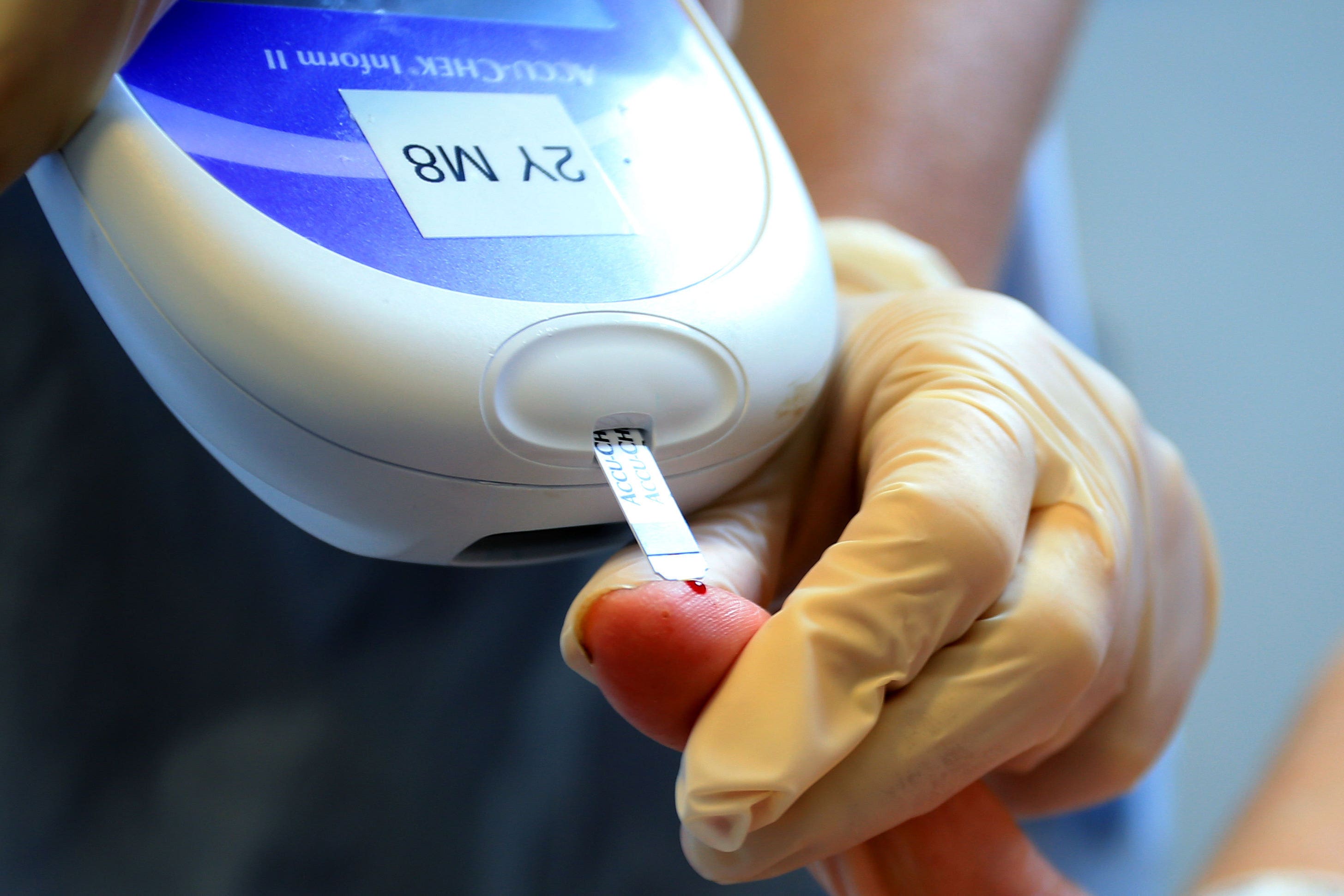Few patients can treat their type 2 diabetes through weight loss alone – study
Previous clinical trials have suggested patients can control their blood glucose levels without medication if they lose weight and keep it off.

Very few patients diagnosed with type 2 diabetes are able to treat their condition with weight loss alone, new research suggests.
But people who are able to lose the most weight in the first year are the most likely to keep the condition at bay, the study found.
The findings suggest that controlling type 2 diabetes through sustained weight loss is possible in real-world settings, but that few patients will achieve normal blood glucose levels through weight management alone, especially over the long term.
Researchers say the study indicates that patients should receive early weight management interventions as a way to increase the chances of them being able to keep blood sugar levels down, and stay off treatment.
Greater weight loss within the first year of diabetes diagnosis was associated with an increased likelihood of achieving diabetes remission
Previous clinical trials have suggested type 2 diabetes patients can control their blood glucose levels without medication if they lose weight and keep it off.
However, it is unknown how many patients can achieve remission – blood sugar levels returning to normal and medication stopped – through weight loss alone under real-world conditions.
In the new study, researchers looked at 37,326 people in Hong Kong who were newly diagnosed with type 2 diabetes to see whether – and for how long – patients could control the disease through weight loss.
The research, published in Plos Medicine, found that only 6% of people achieved diabetes remission through weight loss alone by about eight years after diagnosis.
For people who initially achieved remission, two-thirds had elevated blood glucose levels by three years after diagnosis.
The researchers say these rates are significantly lower than in clinical trials.
Andrea Luk of the Chinese University of Hong Kong, said: “Greater weight loss within the first year of diabetes diagnosis was associated with an increased likelihood of achieving diabetes remission.
“However, the incidence of diabetes remission was low with only 6% of people achieving remission over eight years, and half of those with initial remission returned to hyperglycaemia within three years, indicating poor sustainability of diabetes remission in a real-world setting.”
People with a high waist measurement, and those who are overweight or obese are at greater risk of type 2 diabetes.
In the study, people who had a 10% weight loss within a year of diagnosis were more than three times more likely to see a remission in their diabetes, those who had a 5% to 9.9% weight loss were more than twice as likely, and people who had a weight loss up to 4.9% were around a third more likely to see remission than people with weight gain.
The experts suggest that one reason for the discrepancy with clinical trials is that people on trials receive intensive lifestyle interventions, including support for dietary changes, physical exercise and mental health.
Bookmark popover
Removed from bookmarks